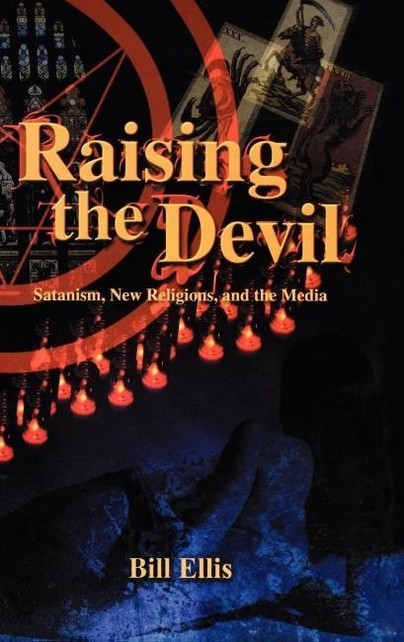Raising the Devil (Hardback)
Satanism, New Religions, and the Media
Imprint: University Press of Kentucky
Pages: 352
ISBN: 9780813121703
Published: 5th October 2000
Script Academic & Professional
Pages: 352
ISBN: 9780813121703
Published: 5th October 2000
Script Academic & Professional
This book will be reprinted and your order will be released in due course.
You'll be £36.00 closer to your next £10.00 credit when you purchase Raising the Devil. What's this?
+£4.99 UK Delivery or free UK delivery if order is over £40
(click here for international delivery rates)
Need a currency converter? Check XE.com for live rates
(click here for international delivery rates)
Need a currency converter? Check XE.com for live rates
Raising the Devil reveals how the Christian Pentecostal movement, right-wing conspiracy theories, and an opportunistic media turned grassroots folk traditions into the Satanism scare of the 1980s. During the mid-twentieth century, devil worship was seen as merely an isolated practice of medieval times. But by the early 1980s, many influential experts in clinical medicine and in law enforcement were proclaiming that satanic cults were widespread and dangerous. By examining the broader context for alleged "cult" activity, Bill Ellis demonstrates how the image of contemporary Satanism emerged during the 1970s. Blaming a wide range of mental and physical illnesses on in-dwelling demons, a faction of the Pentecostal movement became convinced that their gifts of the spirit were being opposed by satanic activities. They attributed these activities to a "cult" that was the evil twin of true Christianity. In some of the cases Ellis considers, common folk beliefs and rituals were misunderstood as evidence of devil worship. In others, narratives and rituals themselves were used to combat satanic forces. As the media found such stories more and more attractive, any activity with even remotely occult overtones was demonized in order to fit a model of absolute good confronting evil. Ellis's wide-ranging investigation covers ouija boards, cattle mutilation, graveyard desecration, and "diabolical medicine"--the psychiatric community's version of exorcism. He offers a balanced view of contentious issues such as demonic possession, satanic ritual abuse, and the testimonies of confessing "ex-Satanists." A trained folklorist, Ellis seeks to navigate a middle road in this dialog, and his insights into informal religious traditions clarify how the image of Satanism both explained and created deviant behavior.
Other titles in University Press of Kentucky...















